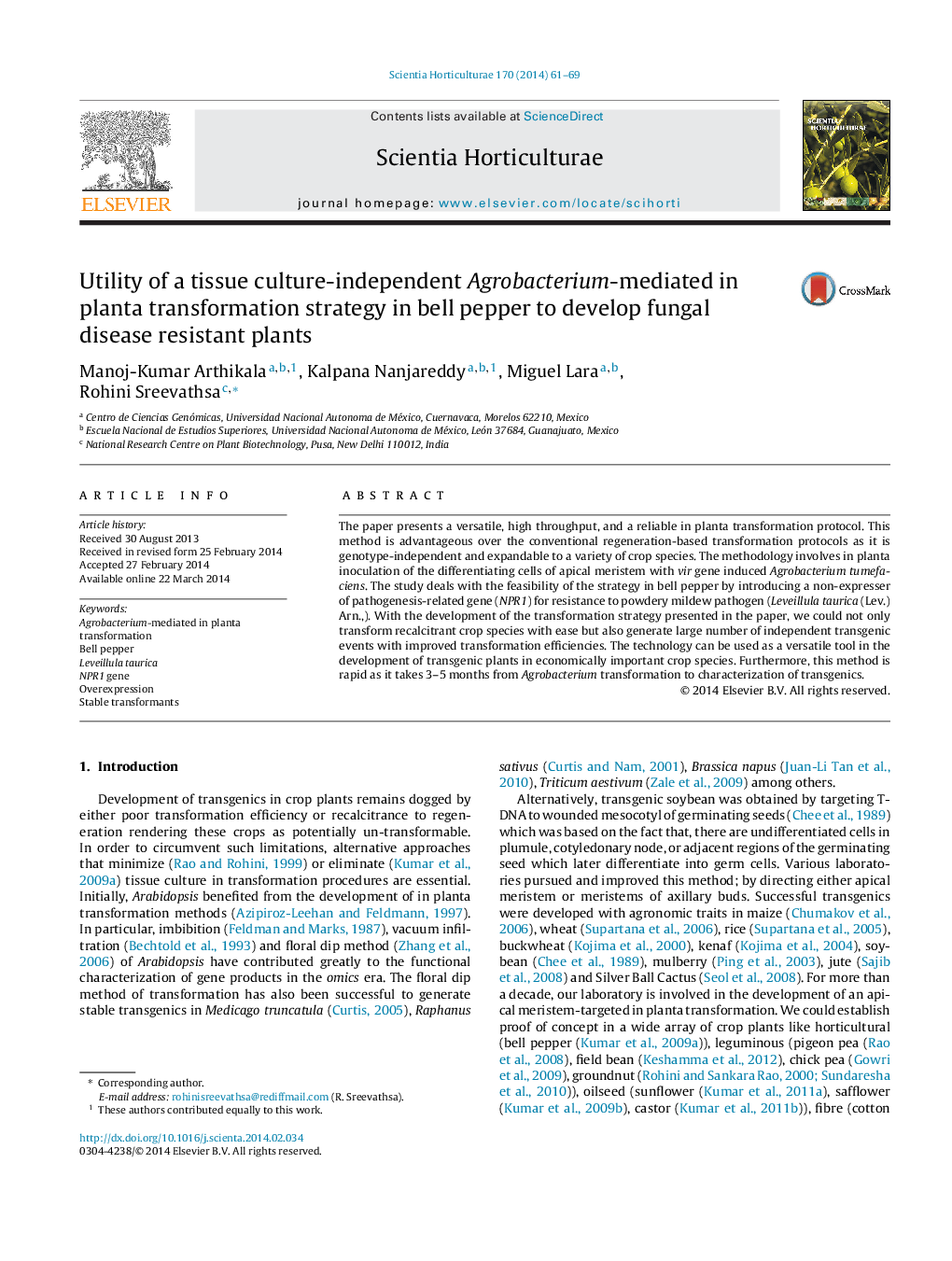| Article ID | Journal | Published Year | Pages | File Type |
|---|---|---|---|---|
| 6407165 | Scientia Horticulturae | 2014 | 9 Pages |
â¢NPR1 overexpressing transgenic bell pepper obtained through in planta approach.â¢T1 transformants were screened based on PCR and GUS analysis.â¢NPR1 overexpression was confirmed through RT-qPCR.â¢T1 lines were reduced the powdery mildew incidence 76.7% relative to controls.â¢Thus, this technology can be used in the crop improvement programmes.
The paper presents a versatile, high throughput, and a reliable in planta transformation protocol. This method is advantageous over the conventional regeneration-based transformation protocols as it is genotype-independent and expandable to a variety of crop species. The methodology involves in planta inoculation of the differentiating cells of apical meristem with vir gene induced Agrobacterium tumefaciens. The study deals with the feasibility of the strategy in bell pepper by introducing a non-expresser of pathogenesis-related gene (NPR1) for resistance to powdery mildew pathogen (Leveillula taurica (Lev.) Arn.,). With the development of the transformation strategy presented in the paper, we could not only transform recalcitrant crop species with ease but also generate large number of independent transgenic events with improved transformation efficiencies. The technology can be used as a versatile tool in the development of transgenic plants in economically important crop species. Furthermore, this method is rapid as it takes 3-5 months from Agrobacterium transformation to characterization of transgenics.
Graphical abstractDownload full-size image
